
Kidney doctor reveals 9 everyday medications that could be silently destroying your kidneys!
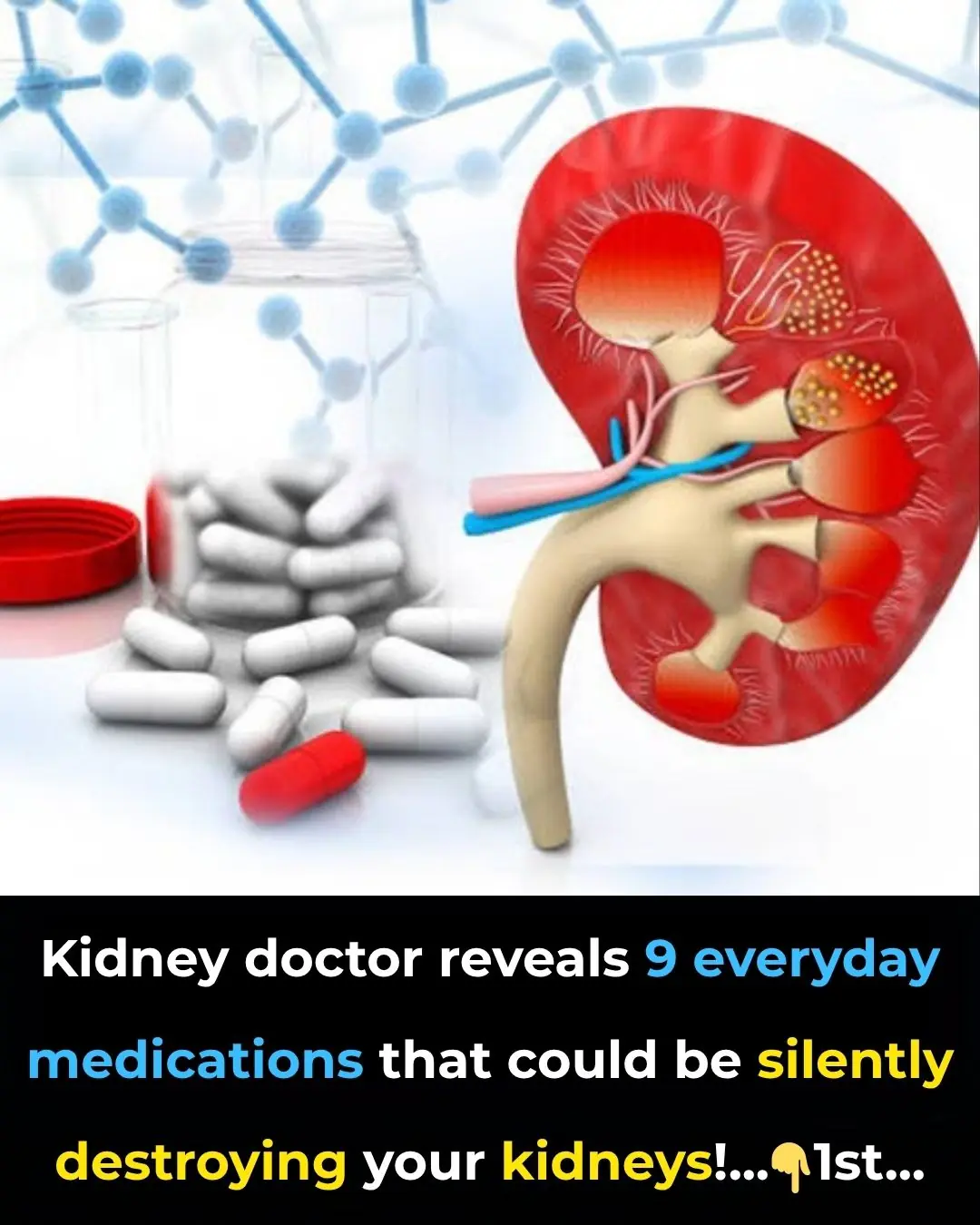
When it comes to our health, we tend to trust that the medicines we take are doing us good. But what if some of those very medications — including common, over-the-counter ones — are quietly harming one of our most vital organs: the kidneys?
According to Dr. Frita, a board-certified nephrologist, several widely used medications and substances can cause kidney damage if used improperly or under certain conditions. Understanding these risks is essential for protecting your long-term kidney health.
🧠 How Medications Can Affect the Kidneys
It’s unsettling to realize that a pill designed to heal one part of the body might harm another. The kidneys play a critical role in filtering toxins, balancing electrolytes, and regulating blood pressure. When certain drugs interfere with these processes, they can cause kidney strain or even permanent damage.
That doesn’t mean you should avoid taking prescribed medications — but it does mean you should be aware, stay hydrated, and talk openly with your doctor about any risks or alternatives. Being informed allows you to make better choices for your health.
💊 9 Common Medications That Can Damage the Kidneys
1. NSAIDs (Nonsteroidal Anti-Inflammatory Drugs)
Drugs like ibuprofen, naproxen, and diclofenac are popular pain relievers, but they can reduce blood flow to the kidneys, leading to acute kidney injury or even chronic kidney disease.
Risk factors: dehydration, existing kidney issues, or prolonged use.
Tip: Only take NSAIDs as directed and avoid them if your doctor has warned you about kidney problems.
2. Antibiotics
While essential for fighting infections, certain antibiotics — such as gentamicin, vancomycin, and Bactrim (trimethoprim-sulfamethoxazole) — can be hard on the kidneys.
Why? These drugs are filtered through the kidneys and can build up if kidney function is already reduced.
Tip: Always tell your doctor if you have any kidney concerns before starting antibiotics.
3. ACE Inhibitors (Angiotensin-Converting Enzyme Inhibitors)
Medications like lisinopril, enalapril, and ramipril are often prescribed for high blood pressure and early kidney protection. However, in people with advanced kidney disease, dehydration, or artery blockages, these drugs can reduce kidney filtration too much.
Tip: Your doctor should monitor your creatinine and potassium levels before and after starting these medications.
4. Diuretics (Water Pills)
Commonly used for heart failure or high blood pressure, diuretics like furosemide and hydrochlorothiazide help remove excess fluid. But long-term or excessive use can lead to dehydration and electrolyte imbalance, stressing the kidneys.
Tip: If you’re on diuretics, regular kidney function tests are essential.
5. ARBs (Angiotensin Receptor Blockers)
Losartan and valsartan are similar to ACE inhibitors and often used when patients experience a cough from ACEIs. They can still reduce kidney function in people with advanced kidney disease or dehydration.
Tip: Always check kidney function and hydration status during ARB treatment.
6. Chemotherapy Drugs
Certain chemotherapy agents, including cisplatin and methotrexate, are well known for their potential to cause kidney toxicity.
Tip: Oncologists typically monitor kidney function closely and may recommend IV hydration before and after treatment to reduce the risk of damage.
7. Imaging Contrast Dyes
Contrast dyes used in CT scans and angiograms can sometimes trigger contrast-induced nephropathy, especially in people with preexisting kidney disease, diabetes, or dehydration.
Tip: Ask your doctor about alternative imaging methods or protective hydration protocols if you need a contrast scan.
8. Mood Stabilizers (Lithium)
Lithium, a powerful mood stabilizer for bipolar disorder, can cause kidney damage after years of use.
Tip: Anyone on lithium should have regular kidney tests. If problems arise, psychiatrists can often adjust the dosage or recommend a safer alternative.
9. Alcohol and Illicit Drugs
Excessive alcohol raises blood pressure and promotes dehydration — both dangerous for kidney health. Meanwhile, drugs like cocaine and heroin can cause severe kidney injury through toxic effects and constricted blood vessels.
Tip: Limiting or avoiding these substances is one of the best ways to protect your kidneys long-term.
🩺 Be Your Own Health Advocate
Knowing which drugs can affect your kidneys puts you in control of your health. Here’s what you can do to protect yourself:
-
Know Your Kidney Numbers: Ask your doctor about your eGFR (estimated glomerular filtration rate) and serum creatinine levels — they indicate how well your kidneys are working.
-
Stay Hydrated: Drinking enough water helps your kidneys flush out waste and toxins effectively.
-
Ask Before Starting New Medications: Always check if a new prescription or over-the-counter drug can impact your kidneys, especially if you’re already taking multiple medications.
-
Report Unusual Symptoms: Swelling, fatigue, or changes in urination could be early signs of kidney stress.
-
See a Nephrologist: If you have diabetes, hypertension, or existing kidney disease, consulting a kidney specialist can make a huge difference.
⚖️ The Balance Between Healing and Harm
Medications save lives — but they must be used wisely. Protecting your kidneys isn’t about fear or avoidance; it’s about balance, awareness, and proactive care.
Your kidneys quietly filter your blood 24/7, removing toxins and maintaining balance in your body. By staying informed, asking questions, and working closely with your healthcare team, you can ensure that the medicines you take truly heal — without harming these vital organs.
News in the same category

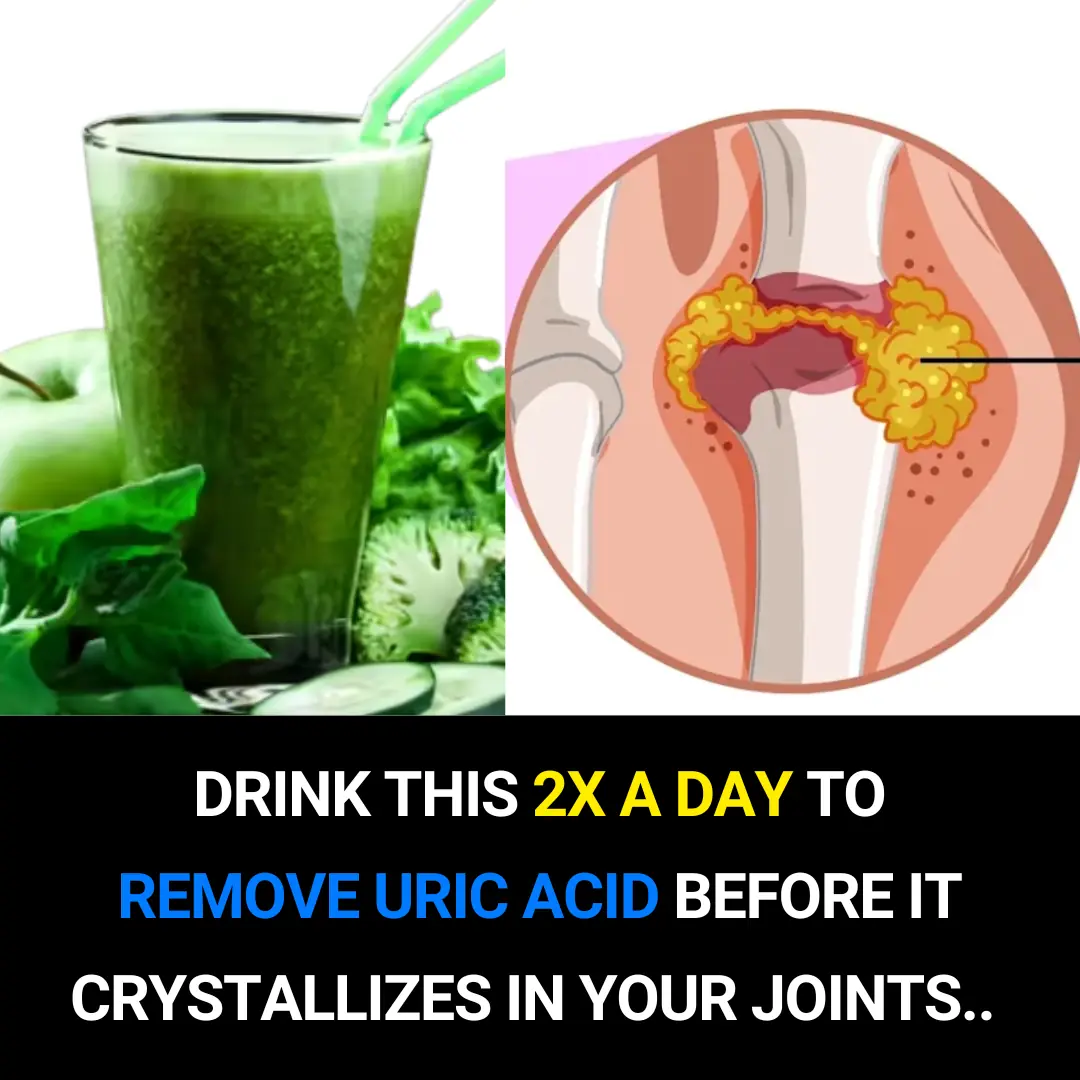
Drink This Twice a Day to Help Remove Uric Acid Before It Crystallizes and Causes Joint Pain

10 Signs you are Eating Too Much Sugar

Three-Food Combo to Strengthen Your Heart

The Hidden Health Benefits of Bananas for Women

Chicken Egg, Garlic, and Honey — You’ll Thank Me for This Simple Recipe
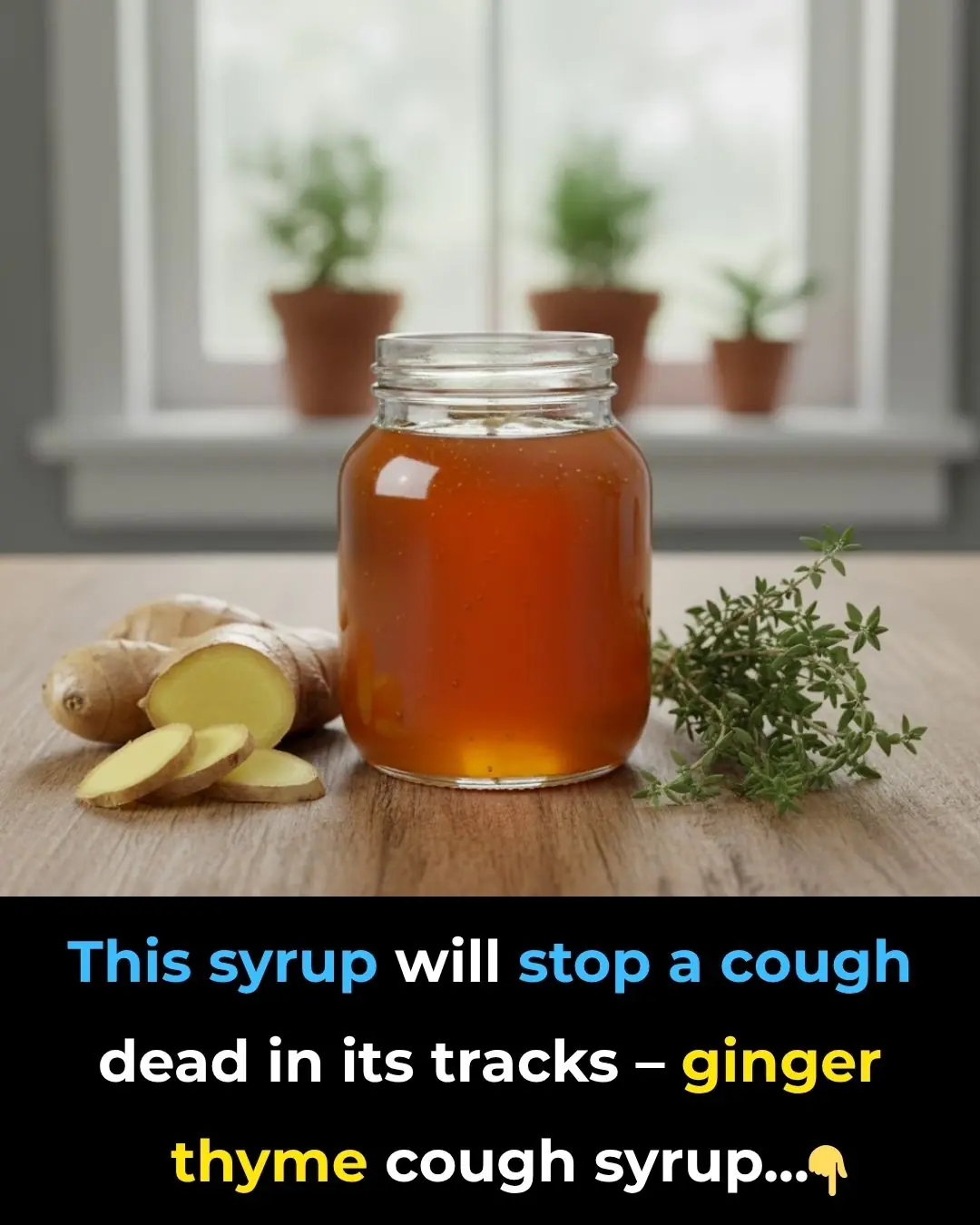
This Syrup Will Stop a Cough Dead in its Tracks – Ginger Thyme Cough Syrup

Take just 1 a day for strong bones, pain-free joints & osteoporosis protection!
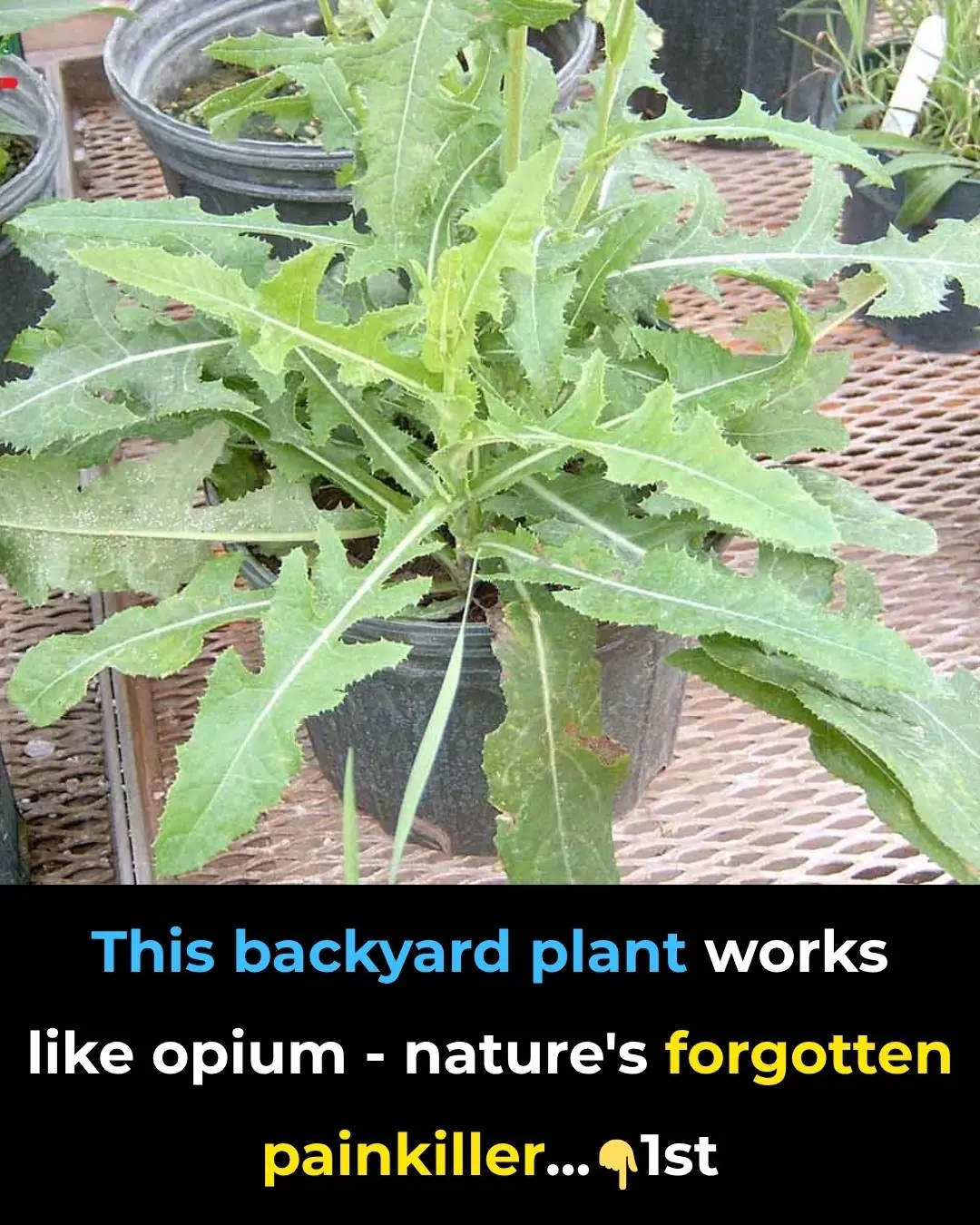
Similar To Opium: The Best Natural Painkiller That Grows In Your Backyard

World’s deadliest cancer: 8 early warning signs every older adult should know

Eat okra every day? Here’s what happens to your body!

Holy basil shown to cut stress hormone cortisol by 36% in 40 minutes
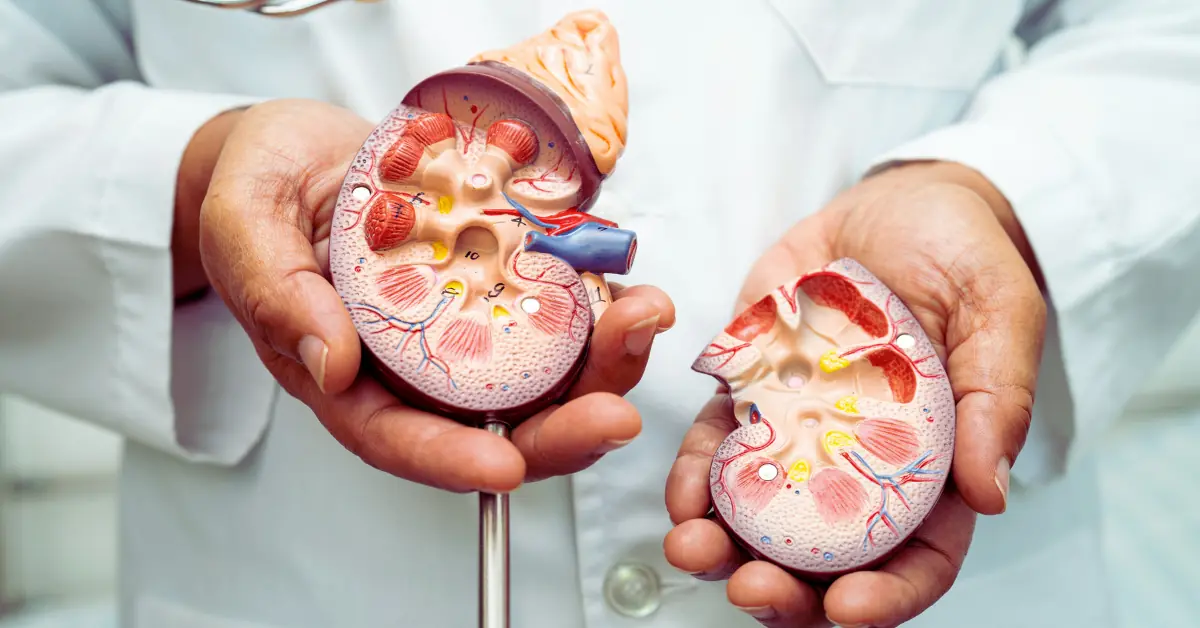
These 14 Foods Will Improve Your Kidneys’ Ability To Detox Like Never Before!
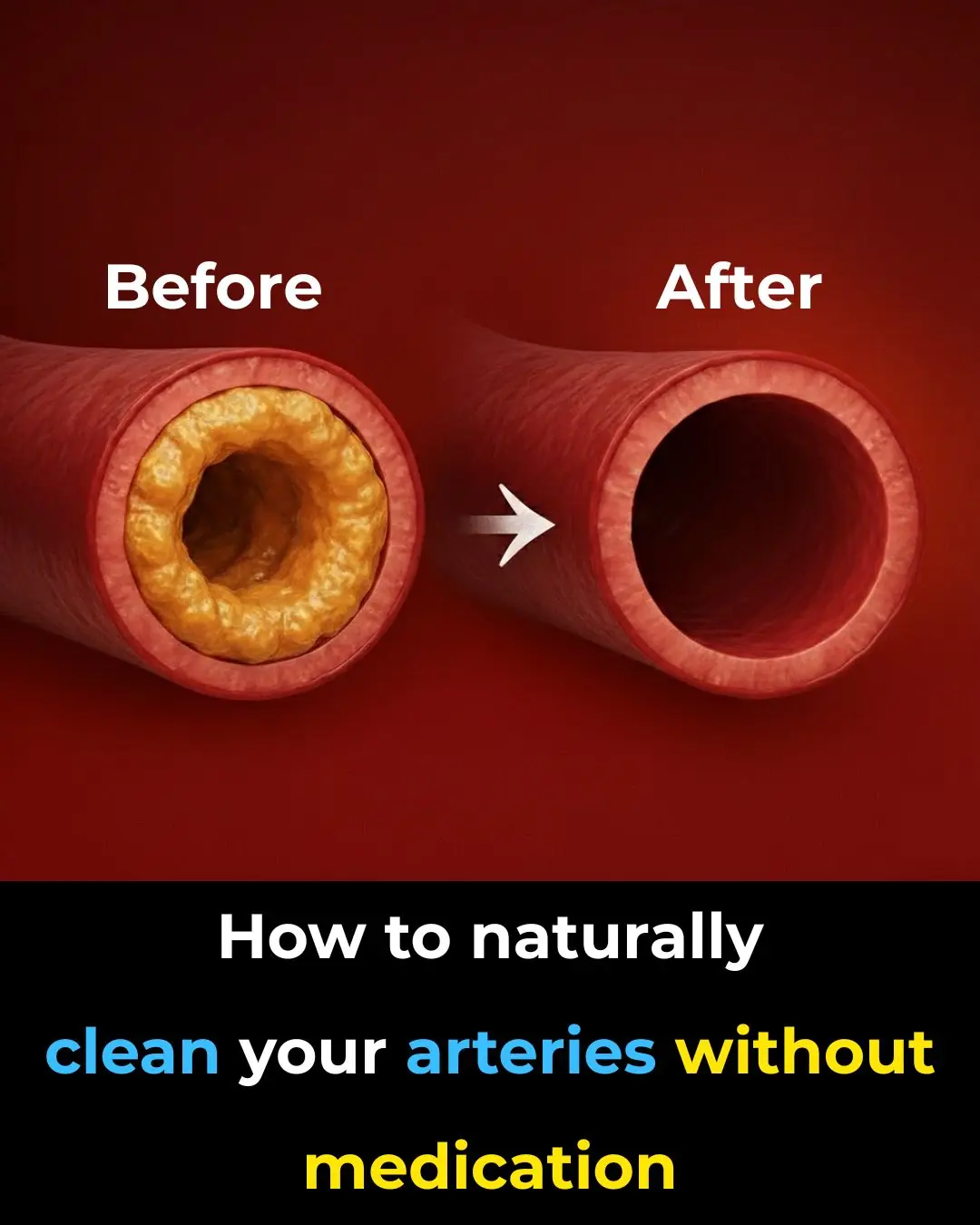
The Best Foods to Cleanse and Prevent Clogged Arteries

This Plant Is More Than Just a Kitchen Herb — It’s One of the Most Powerful on Earth

The surprising vitamin that helps break down leg clots—are you getting enough?

Why Your Hard-Boiled Eggs Have That Weird Green Ring

The shocking truth about vitamins and blood clots in your legs
News Post

Don’t Toss That Tuna Can

4 things you shouldn't keep

Predictions made about King Charles’ future with whispers of ‘conflict’ as he celebrates his birthday

Clothes worn for a long time turn yellow, use this method to make them white again like new

A legacy of health: Soong Mei-ling – longevity and fight against cancer

EastEnders icon Pat Evans to return as Nigel’s dementia symptoms worsen

Celebrity Race Across The World’s Dylan Llewellyn comforted by Roman Kemp after revealing brother James’ heartbreaking death

How to remove fishy smell in the refrigerator with simple ingredients

Princess Beatrice hosts poignant premature birth charity event with support of her husband Edoardo
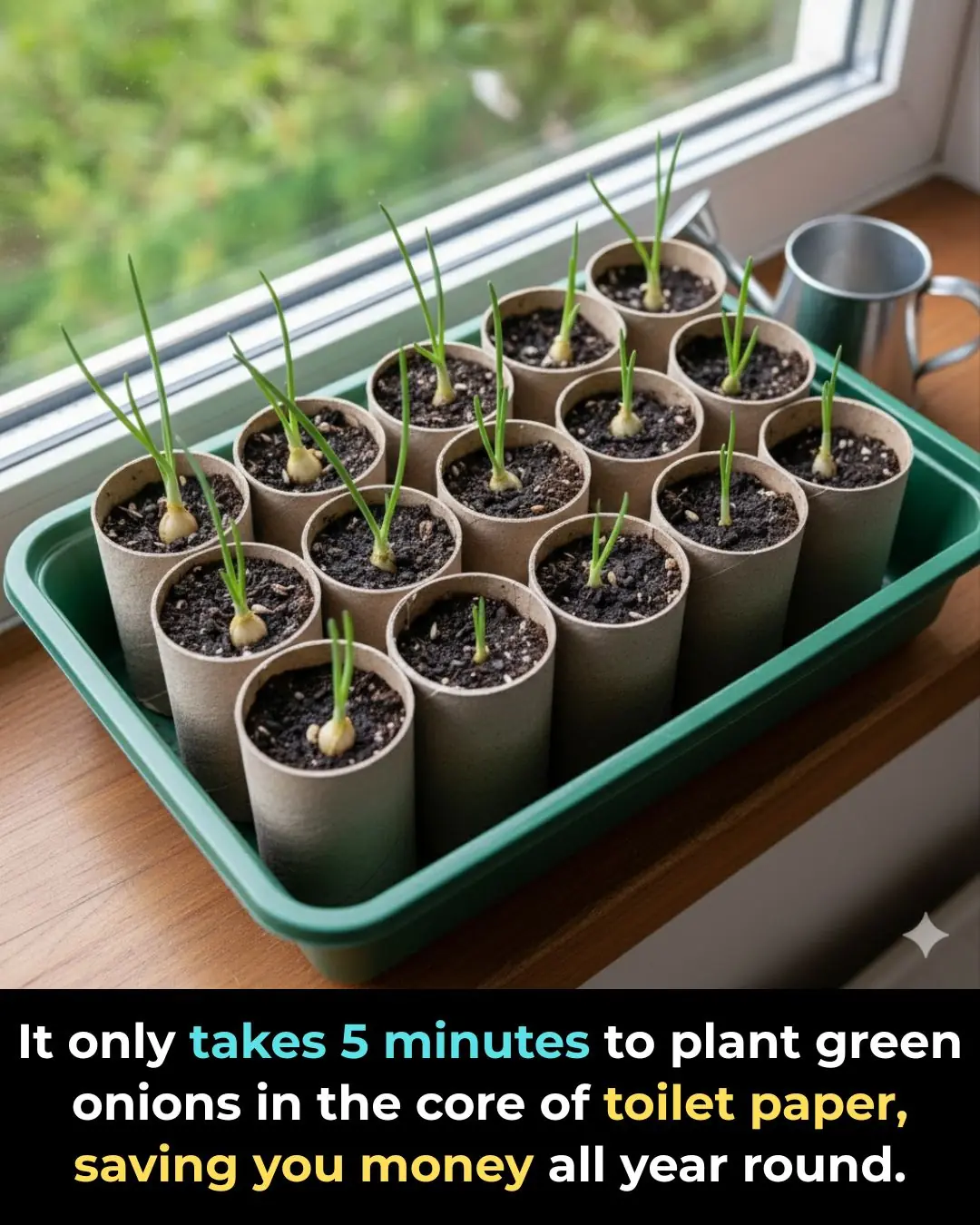
It only takes 5 minutes to plant green onions in the core of toilet paper, saving you money all year round.
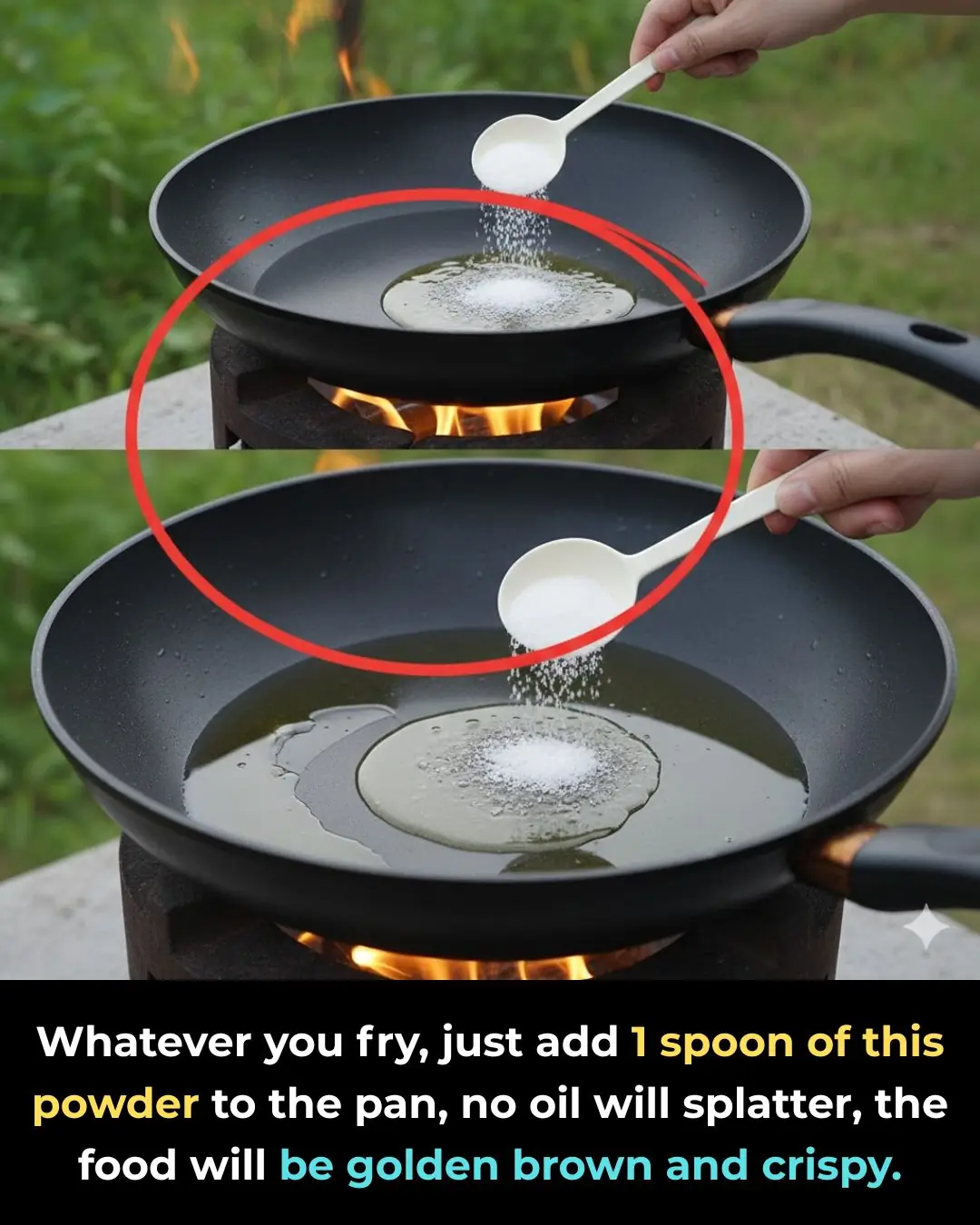
Whatever you fry, just add 1 spoon of this powder to the pan, no oil will splatter, the food will be golden brown and crispy.

Boiled chicken that is not eaten up: Make this strange and easy to eat dish and it will be gone in no time.
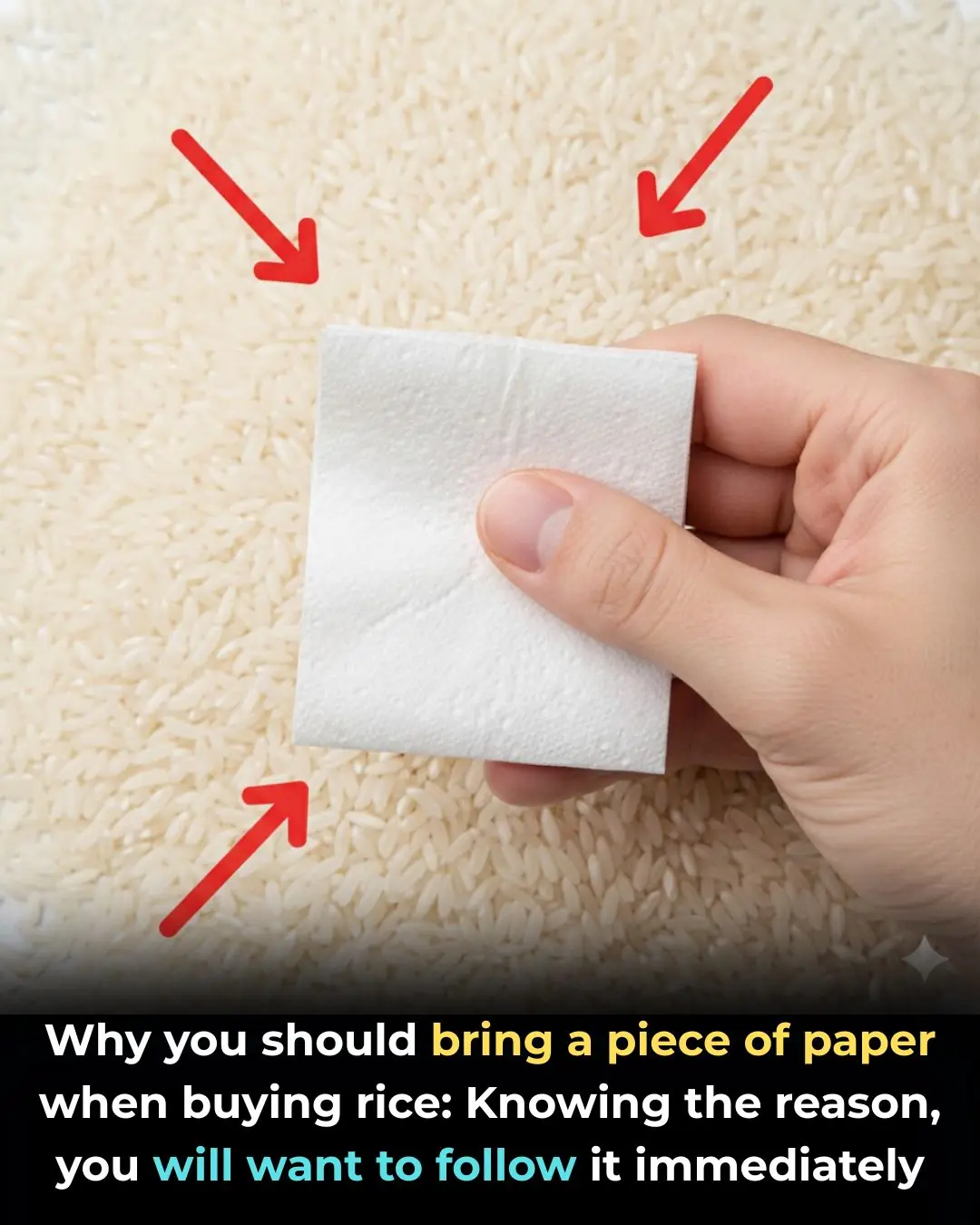
Why you should bring a piece of paper when buying rice: Knowing the reason, you will want to follow it immediately

Anton Du Beke pays tribute to Strictly co-star in emotional Morning Live interview: ‘Always my hero’

Dip fish in this before frying: Fish will be crispy and won't stick to the pan, no need to worry about oil splatter everywhere.
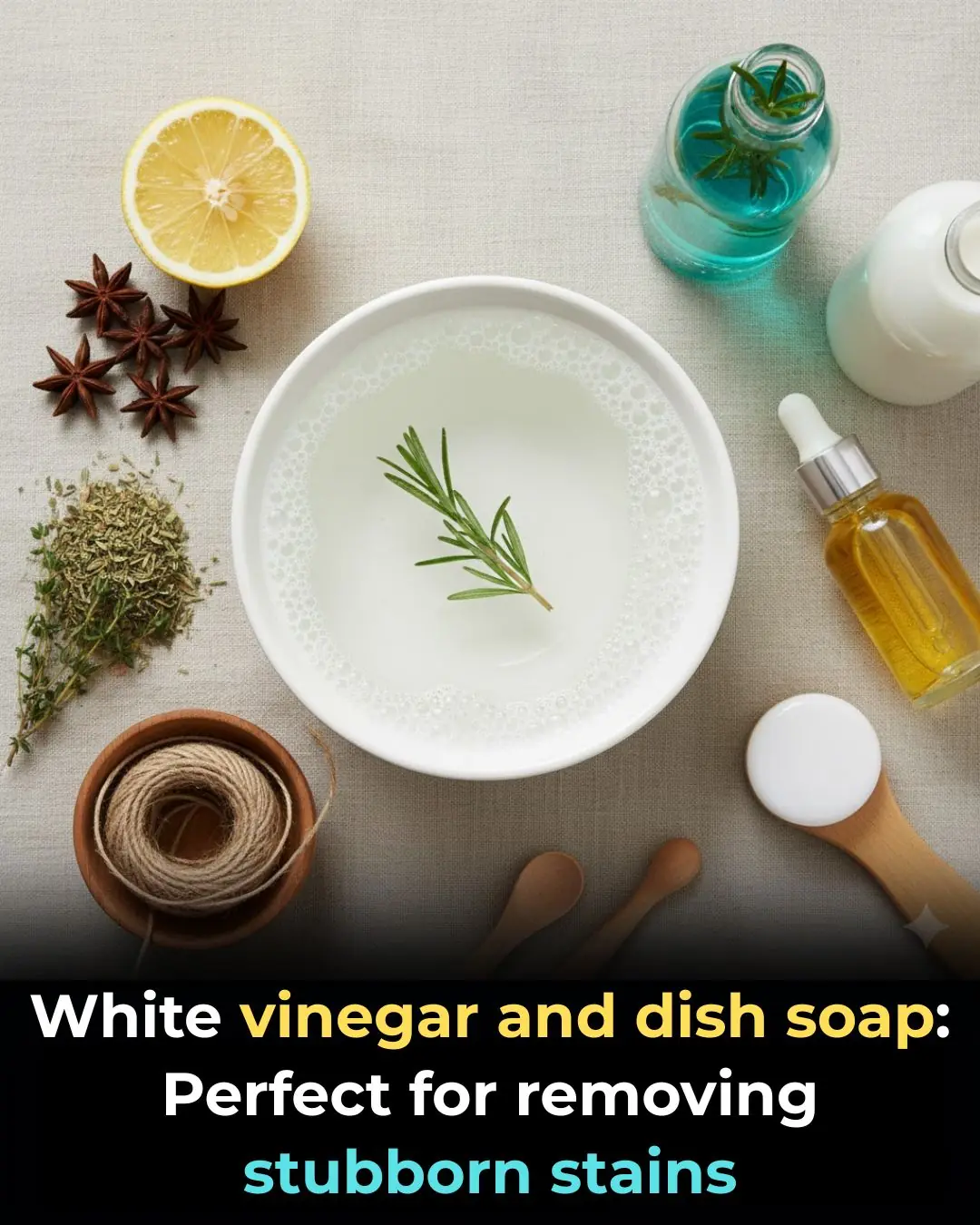
White vinegar and dish soap: Perfect for removing stubborn stains

Gordon Ramsay shares update after revealing skin cancer diagnosis: ‘It was a scare’

Kelvin Fletcher and wife Liz share Fletchers’ Family Farm update as they admit they’re ‘expecting’ little lambs
